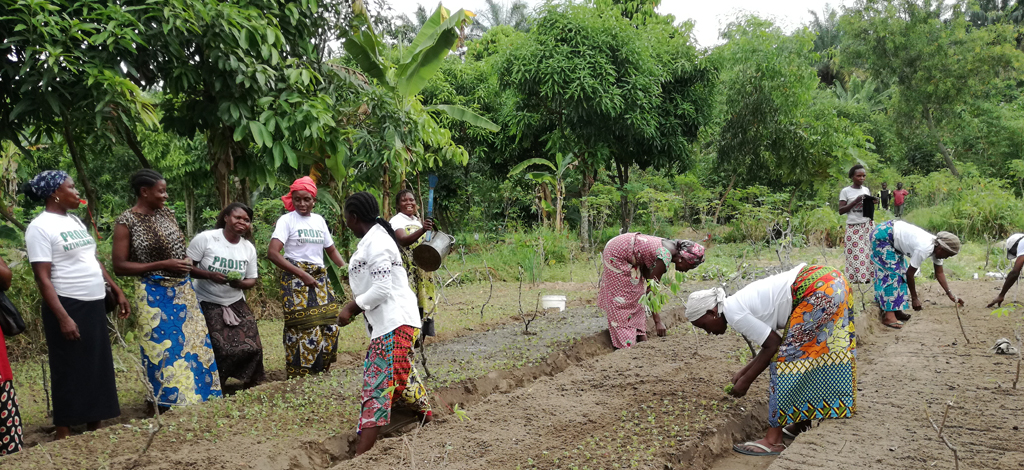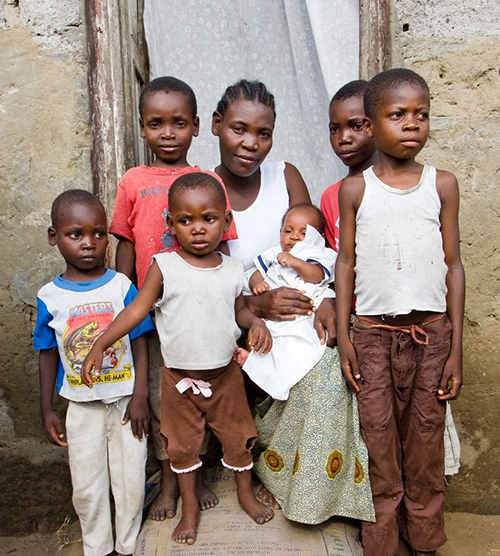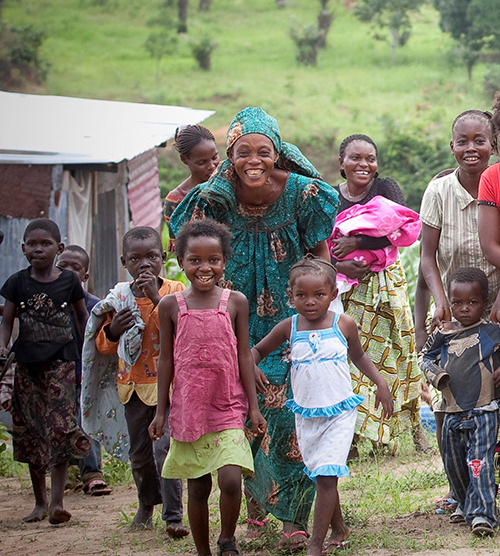The Brussels-Capital Region strongly supports the rights of vulnerable children in Kinshasa by promoting the development of the local economy
Since 2013, Brussels International has been launching a call for projects to fight poverty in its partner cities and regions in the South. The Brussels-Capital Region (BCR) thus contributes to the implementation of the 2030 Agenda for Sustainable Development of the United Nations. The Kinshasa-based LIMPOBA project, which was launched in December 2020, is one of eight selected projects.
The LIMPOBA project – LIMPOBA is an acronym of “LISANGA MAKASI PONA BANA”, meaning “strong communities for the children” in Lingala – is rolling out various sustainable and inclusive community initiatives, including savings and credit cooperative societies, to support the local economic fabric and improve family-based care for the vulnerable children of Kimbanseke, in Kinshasa (Democratic Republic of the Congo).
The project, which will run over a two-year period, has a total budget of €210,000, part of which is jointly funded by the Brussels-Capital Region (€117,000) and the City of Brussels (€60,000). Several partners are involved: SOS Villages d’Enfants Belgique, the City of Brussels (through the intermediary of its non-profit association BRISSI), SOS Villages d’Enfants RDC, the Municipality of Kimbanseke and the UACDK (Union des Associations de Confessions religieuses pour le Développement de Kimbanseke/The Union of Denominational Associations for the Development of Kimbanseke).
Children, in particular, are very vulnerable
As the largest country of the African continent, the Democratic Republic of the Congo (DRC) has a population of 85 million, 56% of which are children, according to UNICEF’s figures. After President Mobutu was deposed in 1997, the country has endured several periods of instability, leading to precarious living standards, in particular for children and young people. The massive displacement of populations has made the situation all the more dire in the country’s capital, Kinshasa.
|
|
|
The LIMPOBA project
The LIMPOBA project was set up in Kimbanseke, Kinshasa’s most populous municipality. Children’s rights are extremely precarious in this municipality, as a result of the socio-economic situation of their families.
SOS Villages d’Enfants wants to combine community and individual approaches to enable marginalised families to be part of an inclusive and sustainable development strategy, while contributing to the respect and promotion of children’s rights.
Individualised support to families
The aim is to provide economic support to 200 vulnerable families, so that they can cover their children’s basic needs (approximately 800 children).
To provide a more targeted response to certain vulnerabilities, the LIMPOBA project will offer adapted and individualised support to these families, as part of the Family Development Plan, that is jointly elaborated with a social worker of SOS.
This Family Development Plan is founded on three principles: economic empowerment by setting up an activity that generates income, improving parental competence (in terms of budget management and prioritising resources for the benefit of the children), and raising awareness about civil registration (in particular the registration of children under the age of 18, which is crucial for asserting their rights).
Sharing community resources
The LIMPOBA project also intends to develop or strengthen community structures, to pool resources and promote community empowerment, which is vital in providing effective support to families.
This community solidarity is developed through two models: the Associations Villageoises d’Épargne et de Crédit (AVEC) and the agricultural cooperatives.
The AVEC or Community Savings and Credit Cooperative Societies have 15 to 25 members, who pool their savings in a joint fund, to extend small loans to members to boost their activity or cover a specific need of their children. The agricultural cooperatives, meanwhile, were set up to pool the resources of AVEC members with agricultural activities, enabling to produce and sell their products more easily.
An innovative approach
Typically, donors differentiate between the protection of children’s rights and economic development. However, the health, security, education and rights of children are inextricably linked to possibilities for inclusive and sustainable economic growth. With this project, Brussels International has lent its support for this innovative approach, which consists of promoting children’s rights as part of a sustainable and inclusive development strategy.






